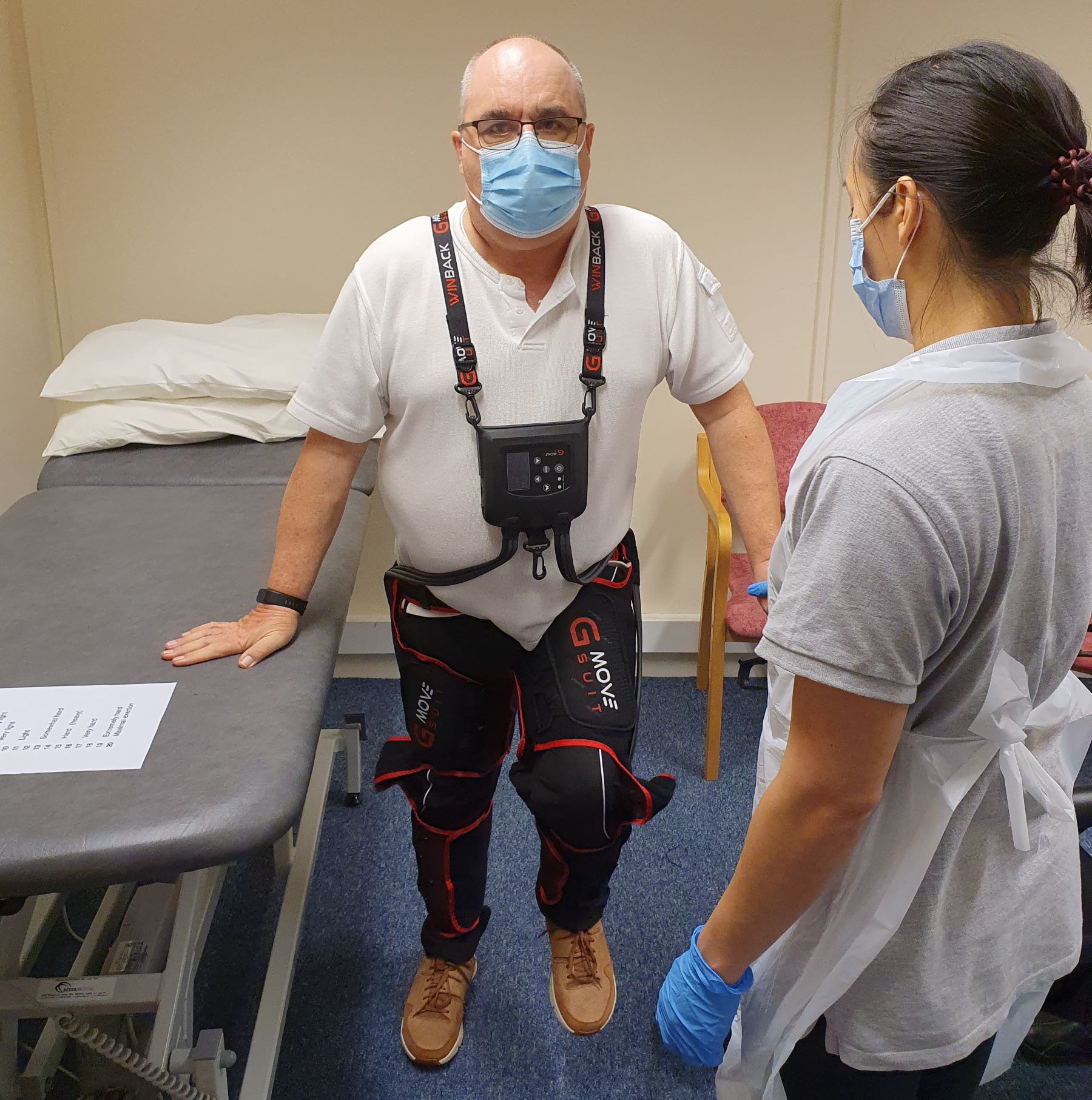
Wearing compression suits as part of a home exercise regime could aid the recovery of stroke victims, according to a study by academics at the University of Winchester.
The research, conducted in association with Hobbs Rehabilitation, found that stroke sufferers who underwent home-based intermittent pneumatic compression (IPC) therapy improved functional mobility, blood pressure, and physical activity levels compared to those who did not use the device.
Participants in the trial were given GMove suits, which apply pressure to the low limbs to stimulate blood circulation and muscle activation. Suit manufacturers Winback donated their equipment free of charge for the trial.
During the12- week trial 15 of the 31 participants wore the suits while undertaking a series of set exercises for at least 30 minutes per day.
Their first IPC therapy session took place at Hobbs Rehabilitation with a physiotherapist to ensure participants were confident in wearing the IPC devices and in undertaking the prescribed activities.
Thereafter participants had regular face-to-face or phone discussions with a therapist to ensure they were using the IPC device properly and were experiencing no ill effects.
All showed greater improvements in their mobility and blood pressure than the control group whose members performed their exercises unaided.
Co-author of the report Dr Scott Hannah, a Senior Lecturer in Sport and Exercise Physiology at the University, said: “This research shows promising results for the use of IPC therapy as a practical, home-based approach to stroke rehabilitation. The improvements in mobility and cardiovascular health suggest that integrating the GMove Suit into rehabilitation programmes could enhance recovery and promote independence for stroke survivors.”.
He added: “Although this was a relatively small study, the findings indicate that IPC therapy could be a valuable addition to home exercise programmes. Future research should explore its effectiveness in a larger and more diverse group of stroke survivors, as well as investigate different durations and intensities of IPC therapy.”
The study builds on the Help Hampshire programme stared at the University of Winchester to provide exercise classes for stroke victims.
Founder of the programme Prof. James Faulkner, until recently Professor in Sport and Exercise Physiology at the University of Winchester, who is now at the University of Southampton, was lead author of the report which is published by the Public Library of Science (PLOS One). In addition to Dr Hannah the other co-authors were Eloise Paine and Nick Hudson from the University of Winchester’s Department of Sport Allied Health Professions and Social Work and Amy Dennis-Jones, Louis Martinelli and Helen Hobbs from Hobbs Rehabilitation.
Louis Martinelli, Specialist Neurological Physiotherapist at Hobbs Rehabilitation, said: “"We have been lucky enough to work with Professor James Faulkner for over 8 years collaborating on numerous research projects, but publishing this study means the most to me. I remember taking the initial call from Winback Medical (founders of the G-Move suit), before contacting Professor Faulkner with the idea. To be part of the study from the very beginning and seeing it through to the very end has been extremely fulfilling."
Pictured top: One of the study participants wearing an IPC suit. (Image courtesy of Hobbs Rehabilitation).
Back to media centre